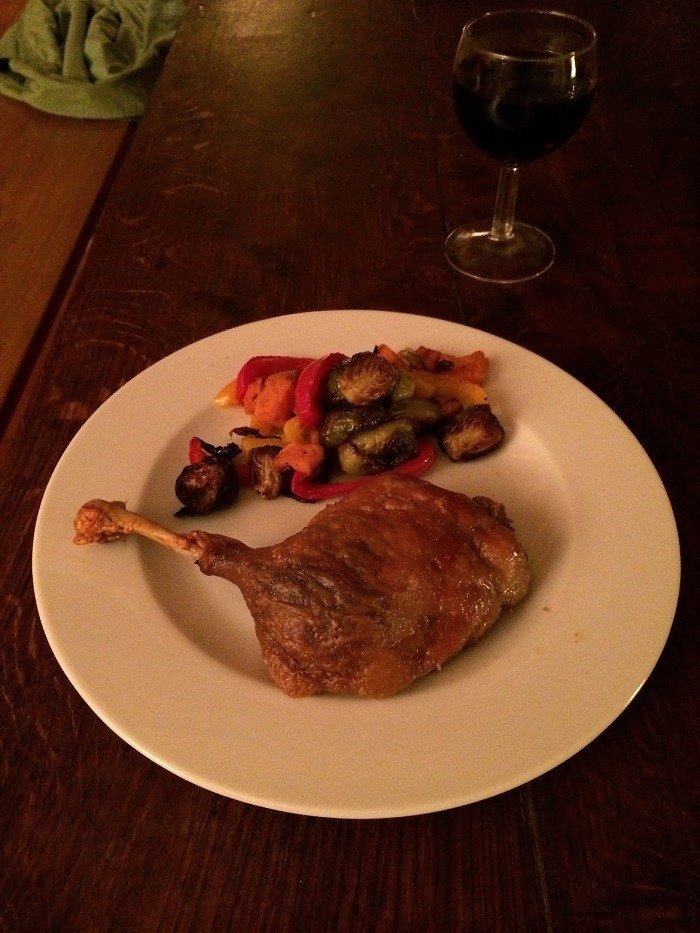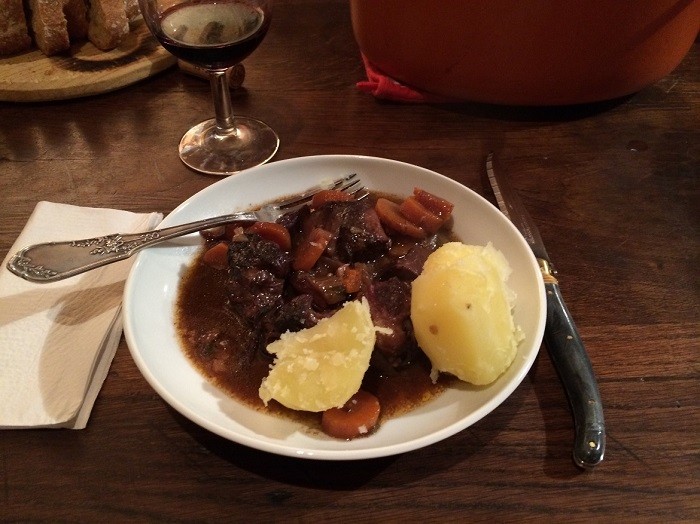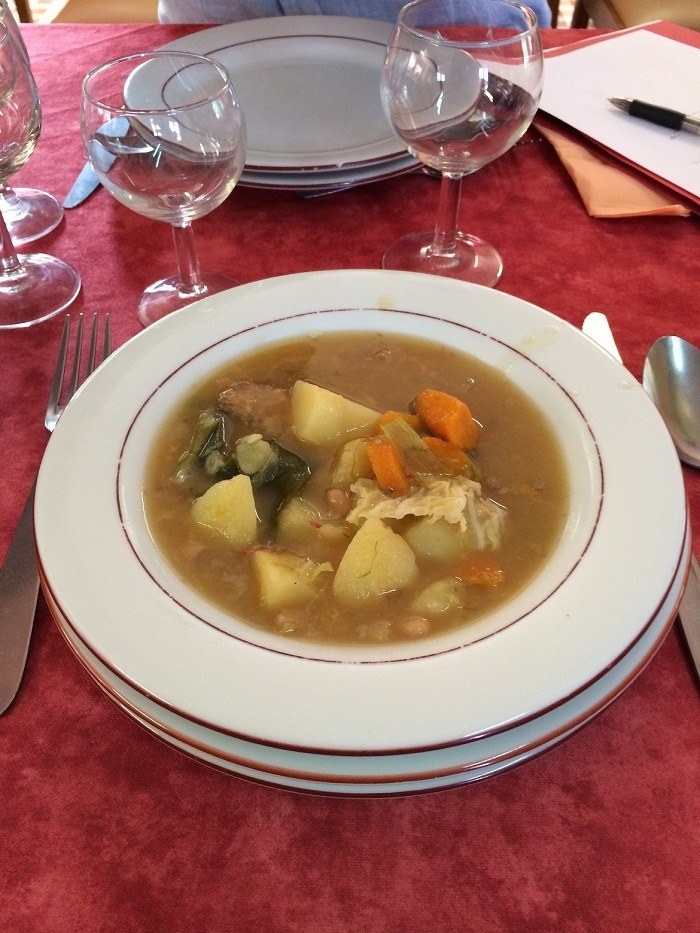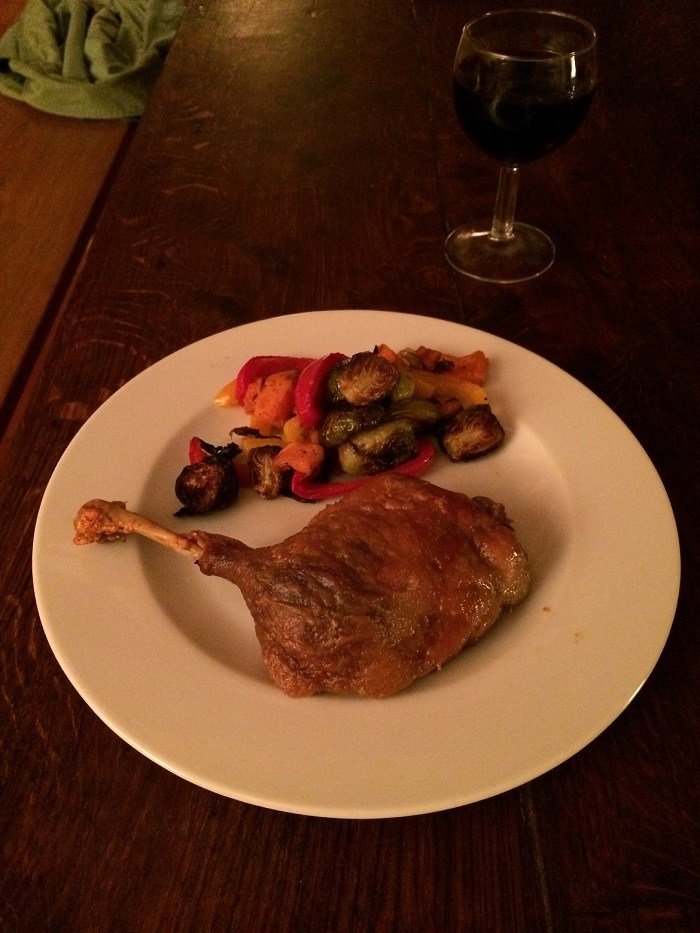Cookbook Of The Week: 'Duck Season' By David McAninch
We may receive a commission on purchases made from links.
"I discovered a land where duck is king... Cooks in Gascony used every part of the bird ... and they cooked its flesh in every which way..."
Duck Season, by David McAninch, the features editor at Chicago magazine, is not a cookbook in the traditional sense. There aren't any photographs throughout the book, and the recipe section is the shortest chapter. The bulk of the narrative is devoted to the story of McAninch's move to Gascony along with his daughter and wife — subletting their condo in Chicago and relocating to a two-hundred-year-old former textile mill by a river.
A self-proclaimed Francophile from a young age, McAninch says that moving to rural France felt like a call to action. After convincing his wife that the move would be "doable and life-changing — in a good way" it was a matter of a four-day house-hunting trip, a handshake deal to secure the house above the river and a quick conversation with the principal of the local school, before the necessary visa and permits were obtained and the family made the move.
Once in France, McAninch delved into Gascon life, learning old farmhouse practices, studying the history of Armagnac (and drinking it too), cooking peasant dishes, and discovering ancient preparations for wild boar and game birds. Throughout the book McAninch learns the lessons of a region where locals eat what they crave, drink wine at lunch, spontaneously burst into song, and always order dessert — a region where, when one asks for a side salad, one is presented "with a plate containing a few leaves of Bibb lettuce topped with confited duck gizzards, six slices of cured duck breast, duck skin cracklings, and a quartered hard-boiled egg."
Recipes in the book include:
— Seared Duck Breasts with Armagnac-Blackberry Sauce
— Nadine's Cabbage and White Bean Soup
McAninch was kind enough to answer a few of our questions about his philosophy and his approach to food. Continue reading below for the interview.
Click here to purchase Duck Season.
The Daily Meal: What is your philosophy of cooking (and/or eating)?
David McAninch: Three words: Slow it down! If living in Gascony taught me anything, it's that the most memorable meals aren't the product of fast-and-furious kitchen theatrics like what you see on TV cooking shows. The best memories are made when you, say, spend an afternoon slow-roasting potatoes in duck fat and gently braising chunks of brisket with aromatics in red wine — ideally while drinking what's left in the bottle. Cooking should relax you, connect you with the ineffable, not give you performance anxiety. That said, flambéing duck legs in Armagnac is really fun — and quite theatrical.
How did it inspire the recipes you chose to include in this book?
You might say the recipes in Duck Season are the result of a personal transformation. Before Gascony, I was a pretty uptight cook. An impatient one, too. I favored fast, high-heat methods, the kind that can quickly turn a tender cut of meat into a charred ruin if you get distracted. All that went out the window when I started trying to master Gascon classics like daube, duck confit, and poule au pot. These are dishes that require lots of time, intuition, and TLC, not fancy equipment or tricky à la minute techniques. And they can be gloriously messy to make.
What is your favorite recipe in the book and why?
The recipe I keep going back to again and again is garbure, the peasant soup of salt pork, white beans, cabbage, and usually a bunch of other things, depending on which Gascon village you happen to be in. I love garbure for its versatility. Can't find jambon de Bayonne? Just use a smoked ham hock instead — and suddenly the garbure has this lovely smoky dimension. Can't find haricots tarbais? Use great northern beans. Can't find savoy cabbage? Throw in some kale. A friend just texted me a picture of a garbure he made from the Duck Season recipe, with shredded roast chicken swapped in for duck confit!
What are some of the foods you can't live without?
I don't like imagining life without oysters. I have not experienced a bad mood that can't be chased away by a few briny Pemaquids or Wellfleets. Also: the Chicago hot dog. The sport peppers, the emerald-green relish, the pickle, the celery salt, the snappy-skinned wiener, the soft poppy-seed bun — it's a textural and gustatory triumph, a handheld pleasure-delivery system, a chapter of America's urban immigrant history written in cased meat. It was one of the first things I ate when I got back from Gascony.
Would you rather dine out or cook at home?
When I'm given the choice, the home-cooked meal almost always wins out. I'm not saying I cook better than a professional chef, or that I'm not amazed by what chefs are doing today. I'm just saying that (a) I'm cheap, (b) meals at home are more relaxing and the fun tends to last longer, and (c) my hackles go up every time I hear the words "Have you dined with us before?" because they are inevitably followed by an earnest disquisition on the sharing of small plates. Living in rural Southwest France — where folks have immense appetites and little patience for frippery — only reinforced my prejudice in this regard, I'm afraid.
What is your favorite go-to meal or drink?
A very large kir (white wine with crème de cassis) followed by a grilled hanger steak seasoned with immoderate amounts of cracked pepper, served with halved summer tomatoes that have been roasted for a few hours at a ridiculously low temperature under a layer of breadcrumbs, herbs, and olive oil until they've almost melted. Plus a glass of something French and red that tastes of earth, dark fruit, and age.
How do you hope readers will use this book, what do you hope they take away?
I'd love for readers to take a page from the Gascon playbook and discover that rich and satisfying meals can be a part of everyday life, not just a way of celebrating special occasions. And like any food or travel writer, I long for readers to taste and imbibe the same things I did — I long to turn my personal experience into a collective one. I got home from Gascony and told everyone, "You've got to visit this place!" Now, at least, I can propose a more affordable option: Buy my book!
Is there anything else you'd like to share?
My first week in Gascony, I tried to grill a couple of handsomely fat-rimmed magrets de canard over a too-hot fire. I stepped away to refill my wine glass and returned to find the duck breasts incinerated, having been engulfed in a duck-fat-fueled inferno. Thus was imparted the cardinal rule of duck cookery: Manage the fat.



